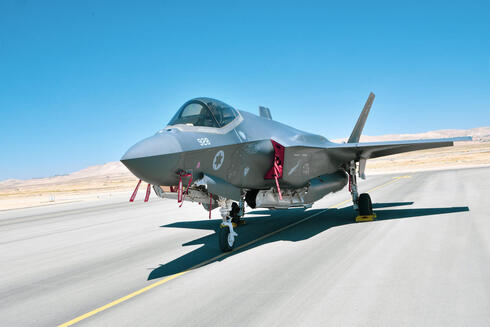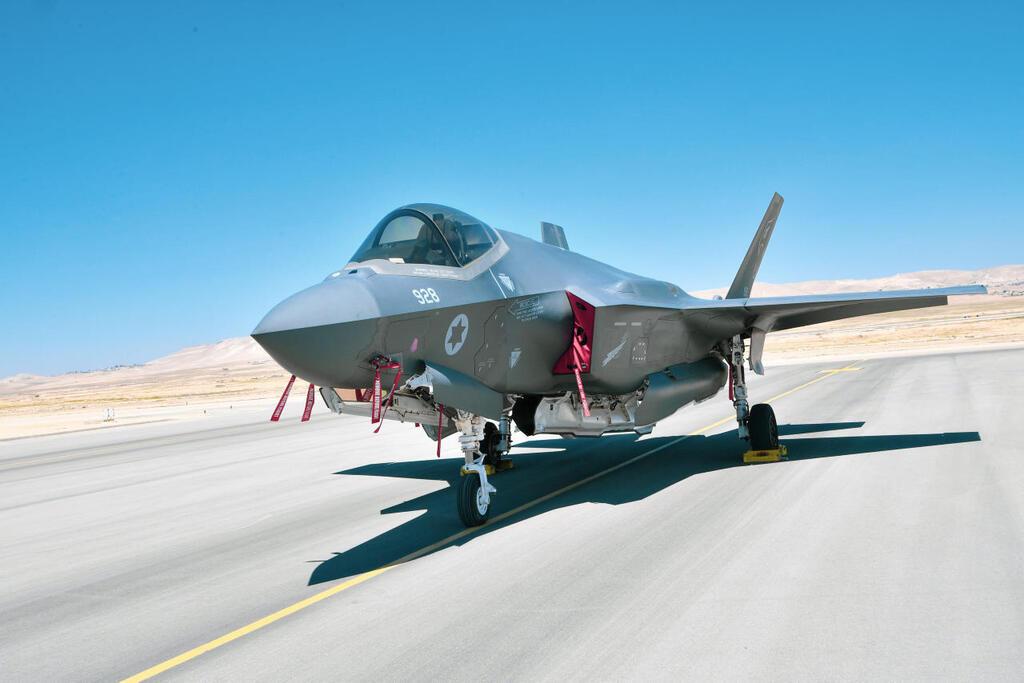
From nuclear sites to cyber attack: Israel's options in retaliating against Iran
IDF Chief has promised a response to Iran’s attack against Israel. What are Israel’s possibilities?
Israeli Prime Minister Benjamin Netanyahu and his immediate war cabinet are considering what action to take following Iran's attack on Saturday.
Allies including the United States have urged Israel not to risk igniting a wider regional conflict, and President Joe Biden has made clear U.S. forces would not join any retaliatory attack on Iran.
Israel has communicated to its allies worldwide that the attack is not expected to escalate into war. Nonetheless, concerns have been voiced regarding the possibility of Israel targeting Iran's nuclear facilities in retaliation, given the scale of the attack on Israel, involving over 300 launches of ballistic missiles, cruise missiles and suicide drones.
"This launch of so many missiles, cruise missiles, and drones into Israeli territory will be met with a response," Israel's military Chief of Staff Herzi Halevi said at the Nevatim Airbase in southern Israel, which sustained some damage in Saturday night's attack.
Iran's attack - launched in retaliation for a suspected Israeli airstrike on its embassy compound in Damascus on April 1 - has increased fears of open warfare between Israel and Iran and heightened concerns that violence rooted in the Gaza war is spreading further in the region.
Here are some of the options which Israel may be considering:
Air strikes
Israel could respond to the Iranian barrage with air strikes of its own, particularly as Iranian air defenses are considered much less well developed than the multi-layer system that Israel and its allies deployed on Saturday night.
An Israeli air force officer told a briefing with reporters that the air force was ready to defend Israel and added: "Some of defense is to react and attack if needed."
"And that is put to our government and the cabinet and for them to decide how, when and if," the officer said.
Such an attack could hit strategic facilities including Revolutionary Guards bases or nuclear research facilities.
Former intelligence officials say it would be less likely to hit civilian infrastructure such as power plants, and would need to avoid civilian casualties. This would be both to ensure no further loss of international support and also because of the assessment that the Iranian authorities are vulnerable to popular pressure over political repression and the dire economic situation. Significant civilian casualties would be considered likely to rally Iranian public support behind the government.
Israel could also hit proxy groups such as Hezbollah in Lebanon or Iranian targets in countries such as Syria and Iraq. However, the fact that Iran directly attacked Israel for the first time suggests that any such action would be only part of a wider response that would also target Iran itself.
Covert operations
Additionally, Israel could potentially target senior Iranian officials through a secretive assassination or do so and take direct responsibility for the attack, unlike previous occasions. Foreign Policy raised the possibility of targeting Amir Ali Hajizadeh, the head of the Revolutionary Guards’ Aerospace Forces, who led the Iranian attack.
Israel is believed to have previously carried out a number of covert operations inside Iran, including the assassination of several of its senior nuclear scientists.
Such operations could be carried out both inside and outside Iran.
NBC reported that the United States anticipates a "limited" response, likely focusing on attacks against Iran's military forces and proxies abroad. Israeli and American officials had discussed potential responses even before the Iranian attack. However, the final decision and options may have evolved since then.
Cyber attack or proxy damage
Halevi promised a response to Iran’s attack but did not confirm it would be a kinetic attack on Iranian soil. Israel may opt to target Tehran's proxies in the Middle East, including Hezbollah, which participated in the attack. A cyber attack or targeting proxies in the Middle East, including Hezbollah, could be considered a "lower level" response.
A cyber attack could undermine Iran's technological capabilities and cause embarrassment. Israel is believed to have carried out numerous cyber attacks in Iran over the years, on infrastructure ranging from petrol stations to industrial plants and nuclear facilities, and a repeat is considered among the likely options for retaliation. Any such attacks could interfere in highly visible areas such as energy production or flight services. As with direct air strikes, former intelligence officials say they believe Israel would avoid attacks on infrastructure such as hospitals to reduce the impact on the general population.
Diplomacy
In addition to military and intelligence strikes against Iran, Israel is stepping up diplomatic efforts to isolate Tehran, including by extending sanctions. Foreign Minister Israel Katz has also renewed pressure on European countries to join the United States in declaring Iran's Revolutionary Guards to be declared a terror organization.
Reuters contributed to this report














